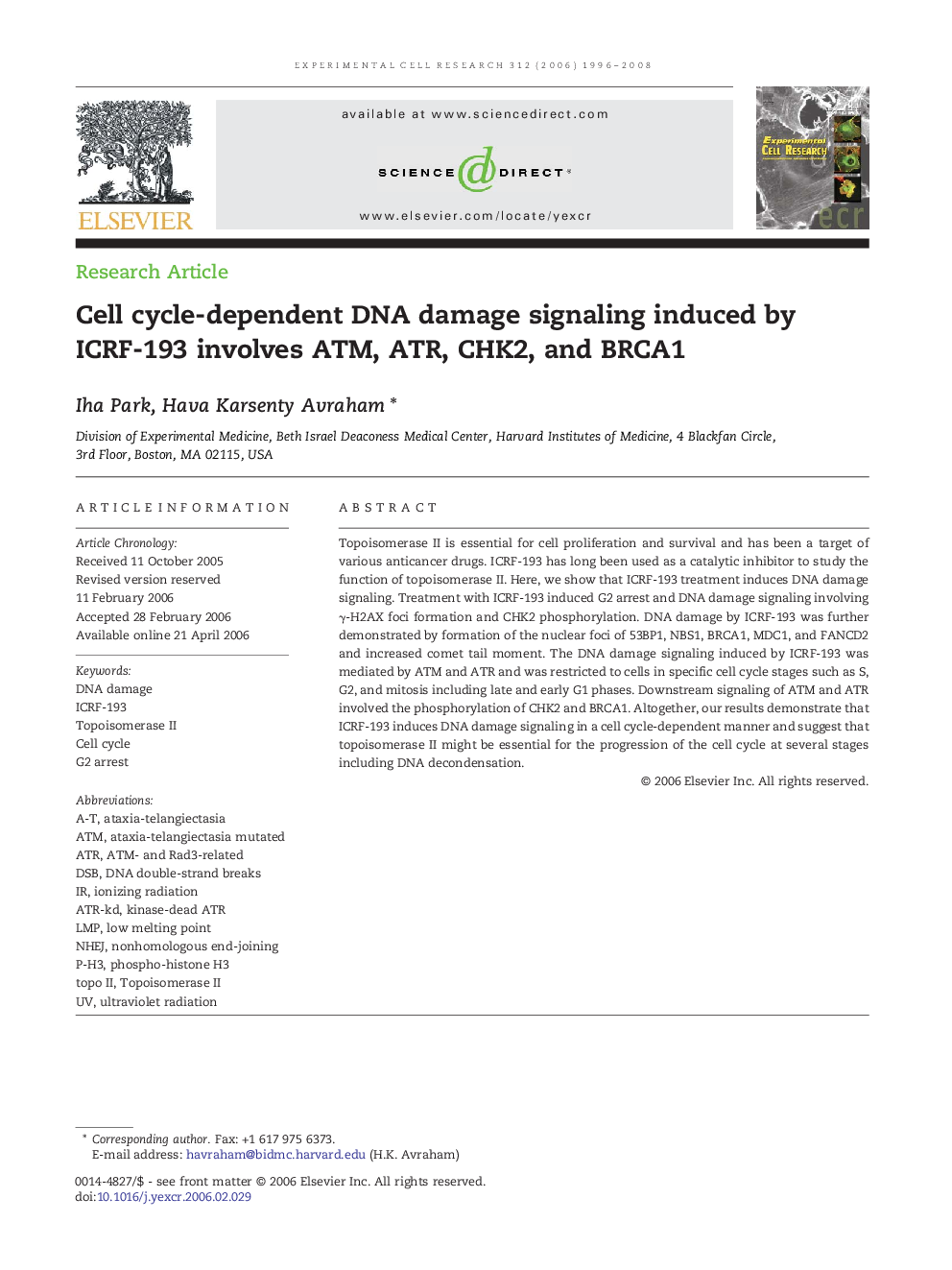| Article ID | Journal | Published Year | Pages | File Type |
|---|---|---|---|---|
| 2133038 | Experimental Cell Research | 2008 | 13 Pages |
Topoisomerase II is essential for cell proliferation and survival and has been a target of various anticancer drugs. ICRF-193 has long been used as a catalytic inhibitor to study the function of topoisomerase II. Here, we show that ICRF-193 treatment induces DNA damage signaling. Treatment with ICRF-193 induced G2 arrest and DNA damage signaling involving γ-H2AX foci formation and CHK2 phosphorylation. DNA damage by ICRF-193 was further demonstrated by formation of the nuclear foci of 53BP1, NBS1, BRCA1, MDC1, and FANCD2 and increased comet tail moment. The DNA damage signaling induced by ICRF-193 was mediated by ATM and ATR and was restricted to cells in specific cell cycle stages such as S, G2, and mitosis including late and early G1 phases. Downstream signaling of ATM and ATR involved the phosphorylation of CHK2 and BRCA1. Altogether, our results demonstrate that ICRF-193 induces DNA damage signaling in a cell cycle-dependent manner and suggest that topoisomerase II might be essential for the progression of the cell cycle at several stages including DNA decondensation.
